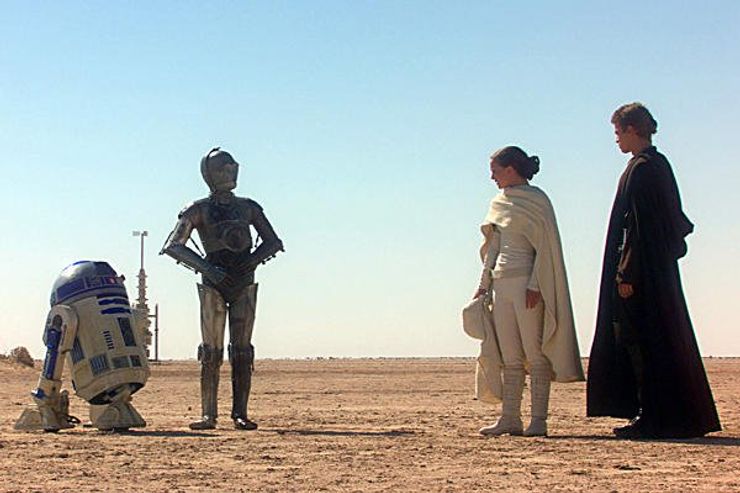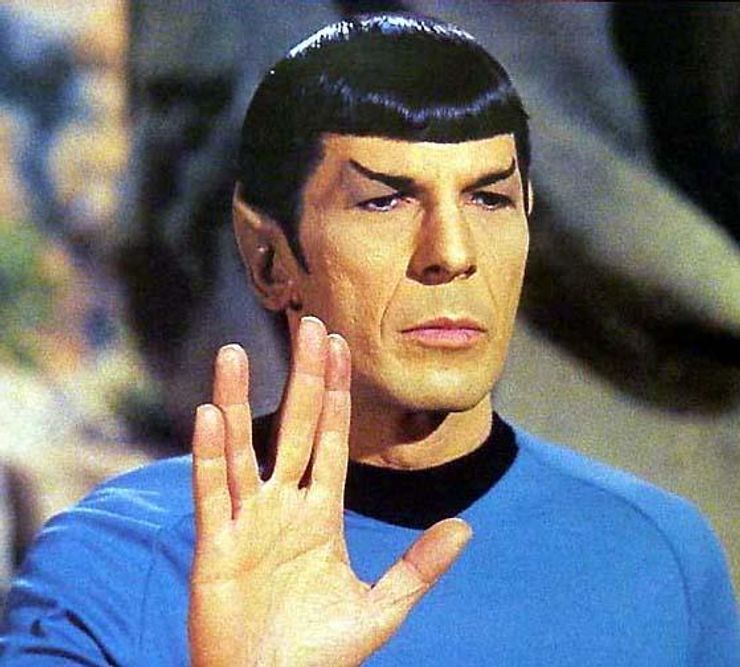Top 10 Mistakes in Science Fiction Movies
Science fictional films often deal with the more fantastical possibilities of science. However, what are the most common 'mistakes' in these films?

Listverse exposed these 'fundamental errors regarding true science' and opened our eyes. Take a glance at their top ten errors of all time in science fiction films below . . .
10. Simplicity
Over-simplicity of science fiction films, regarding both the environment and the nature of the story, has remained an issue for years. Ideally, the science fiction genre should offer a broad depth of details along with thought-provoking scenarios.
9. Simplistic Planets
This is particularly noticeable throughout the Star Wars movies. Whenever a planet is introduced in a science fiction film, it seems to have one uniform ecological system across the entire planet (it might be entirely covered in snow – or entirely covered in sand). If people are living on these planets, they must be provided with water and other important things needed for survival.

8. Alien / Human Breeding
This error is particular evident in Star Trek (Spock was half human and half Vulcan). There are obvious fundamental genetic differences between two species, which must prevent cross-breeding. In fact, cross breeding is of course impossible if the alien just doesn’t have the sexual organs necessary for reproduction.
7. Alien / Human Communication
Communication between alien and human would seem close to impossible within a very short amount of time. Apart from obvious technological drawbacks, there would be problems in translating an entirely unknown language. One should take into consideration major differences in their respective theological understandings of the world, which might be made worse by a huge gap in the evolution of two species. Of course, the addition of a Douglas Adams Babel Fish could solve this particular problem...
We would add Arrival (2016), based on the short story Story of Your Life by Ted Chiang, as another exception: The film, about first-contact, deals really well with the complications, and slow process of alien/human communication.
6. Instant Communications
Even if we did use light particles/waves to transmit radio data, the vast distances in space would make instant radio communication impossible. A rare exception to this flaw is in the movie Contact; as the camera draws away from the earth we hear the radio emanations getting progressively older until you finally reach silence. This trick is very effectively used to show just how massive space is.
5. Humanoid Aliens
This is one of the most popular errors in science fiction on film, in particular the Star Trek series. Creatures from entirely different parts of the universe are shown to be almost identically close to Humans, except for one or two differences in appearance (e.g. shape of head, skin colour). Humans evolved on earth in order to meet a specific criteria for survival – the presumption that these same critera are true on all other planets is ridiculous.

4. Explosions in Space
Unfortunately, one after another, almost every science fiction film makes this error. There couldn't possibly be an explosion in space, because there is simply no oxygen there (it’s a vacuum) to bring in flames. An exception to this is the film 2001, in which Bowman re-enters the Discovery by blowing out an airlock.
3. Superluminal Travel
As an object approaches the speed of light, the energy required to propel it is immense (Einstein’s special theory of relativity). Therefore, by the time an object reaches the speed of light, infinite energy is needed. Consequently, faster-than-light travel is impossible for man.
2. Earth Gravity
No matter which film you watch, almost all of them have a planet with earth-like gravity on it. This is impossible, unless you are on a planet which is identical to earth in every single way (so the gravities match). One film which does not fall for this error is 2001. The intelligent devices used in the film, to show us how humans would live in a non-gravity environment, really make this one of the best films in its genre.
1. Sound in Space
Sound cannot travel without air. Therefore sound in space is simply a myth (space is a vacuum with no air). Many films completely ignore this and give us ear-piercing sound effects during battles. The greatest exception to this error is, yet again, the movie 2001 – all outer space activity takes place in silence – with the occasional addition of the Blue Danube (!).


